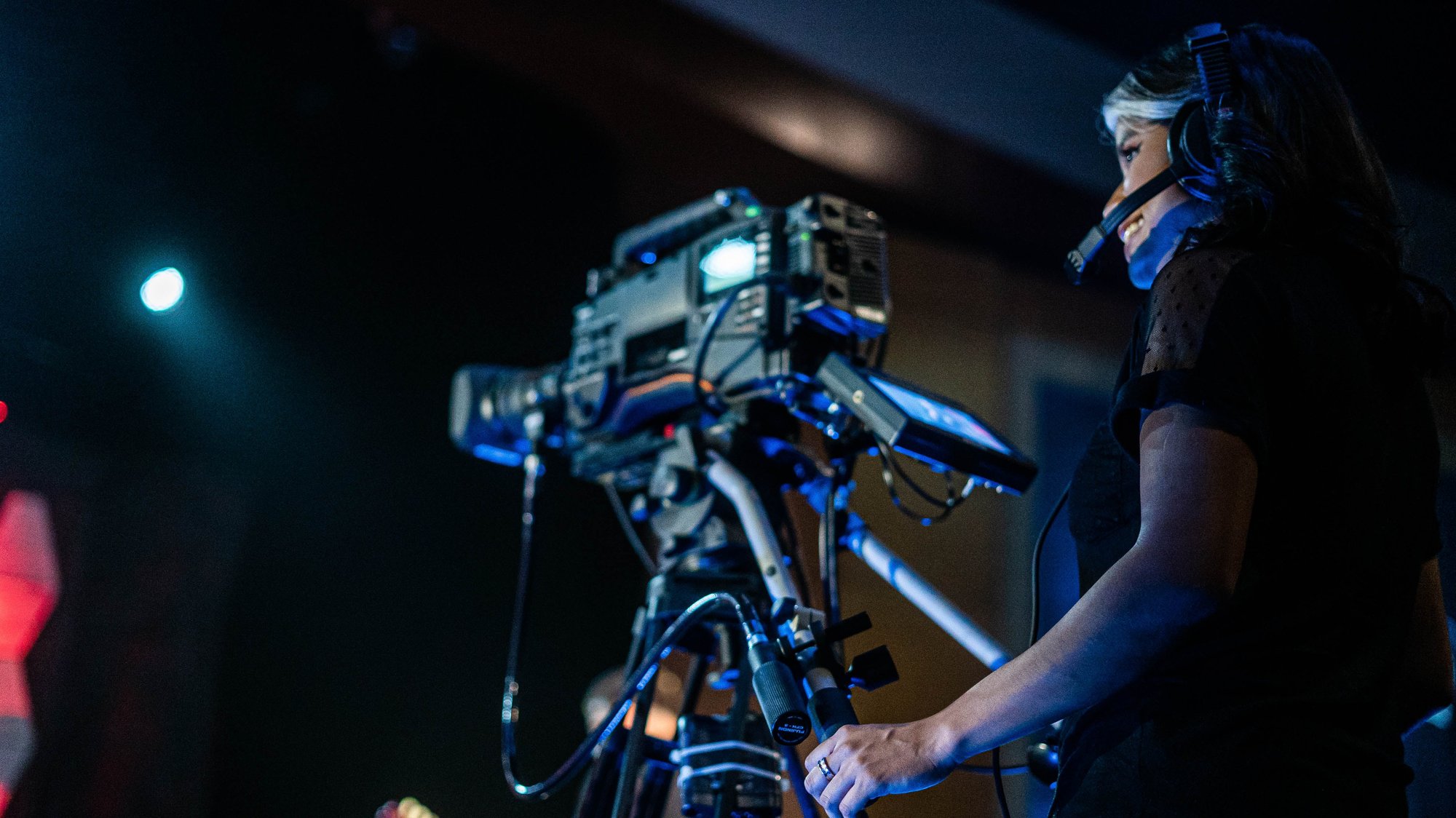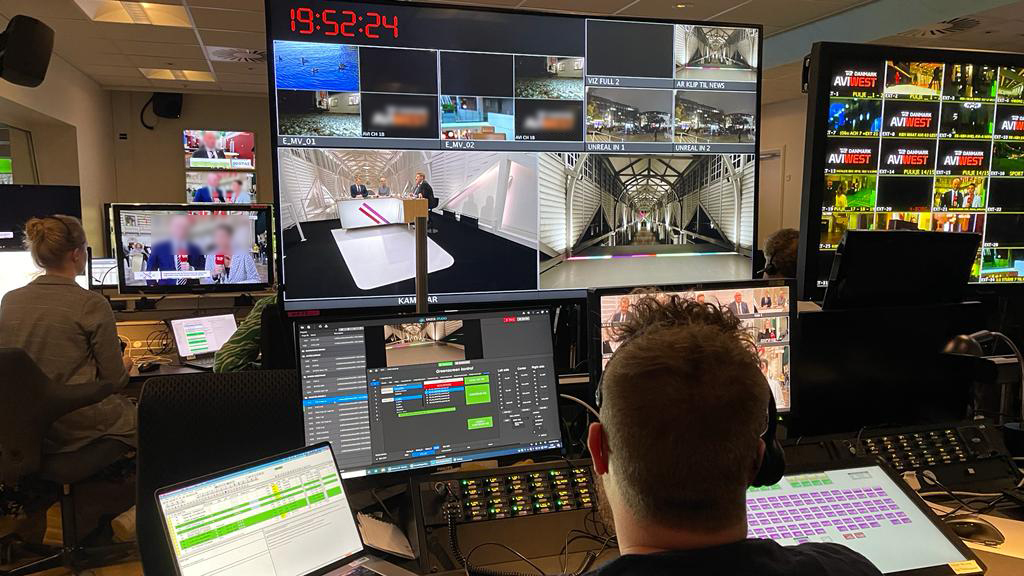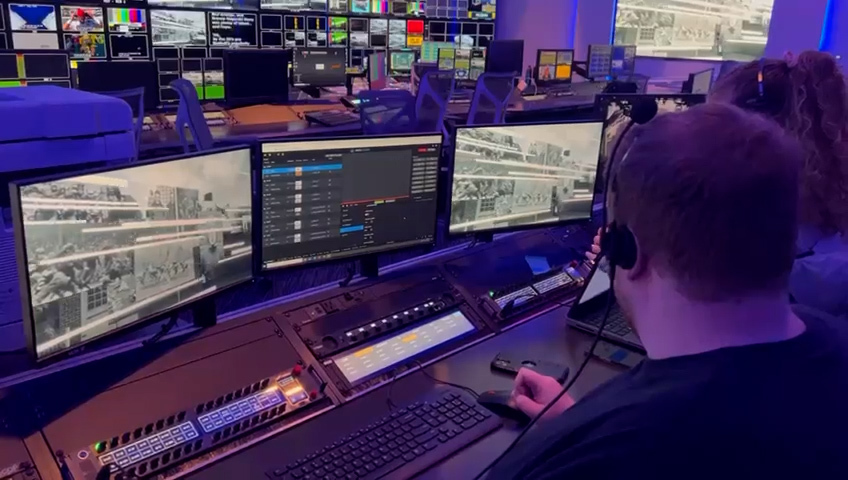REMOTE
PRODUCTION
Transform Live Broadcasts with
REMOTE PRODUCTION TECHNOLOGY
In the fast-paced world of live broadcasts, the push for efficiency, flexibility, and sustainability is leading the charge toward a new era of content creation.
Remote production is at the forefront of this revolution. By enabling live events to be broadcast from remote locations with minimal on-site presence, this approach is redefining the logistics of live TV and event production, making them more adaptable, cost-effective, and environmentally friendly.
REMOTE PRODUCTION
Adopting remote production brings several key benefits, particularly in the context of live event broadcasting:
Remote production significantly cuts down on logistical expenses by minimizing the need for crew and equipment to travel to event locations.
✔ Less personnel traveling reduces travel and accommodation costs.
✔ Less equipment shipped lowers transportation and insurance costs.
Centralizing production allows for the better utilization of technology and human resources across multiple events.
✔ Reuse advanced technology and licenses without the need for multiple sets of equipment.
✔ Deploy your top talent across various productions without geographic constraints.
Central production facilities offer greater adaptability in case of unforeseen circumstances.
✔ Easier substitution of crew members in case of illness or unavailability.
✔ Streamlined response to last-minute changes or technical issues.
A reduction in travel and transportation of equipment contributes to a lower carbon footprint, aligning live broadcast production with greener practices.
KEY FEATURES OF PIXOTOPE
FOR REMOTE PRODUCTION
Pixotope uniquely facilitates virtual production workflows within remote production systems, offering a comprehensive solution for content creators.
With our software, you can create stunning 3D graphics and real-time virtual environments on the fly, no matter where the live event is taking place.
This technology allows for the implementation of advanced graphics workflows remotely, ensuring that live sports and event productions are enhanced with captivating visual elements, all from a different location than where the action is happening.
Embrace the power of live virtual production, streamlining your processes and collaborating from anywhere.
FOR TRACKING
Through-the-lens (TTL)
Camera Tracking
The biggest hurdle to adopting VP for REMI, is the requirement to physically add sensors and equipment to the production cameras.
Pixotope Fly solves this challenge by being a Through The Lens (TTL) based tracking solution.
This means that you can track your camera simply by analyzing the video that comes out of your production camera, which can of course happen anywhere that you can send the video to.
Recently we also added support for zoom, so now you can even do tracking of zoom without any extra encoders or hardware.
-1.jpeg?width=1200&height=717&name=Promo-Facebook-Facebook%20highlighted%20image%20(1)-1.jpeg)
Camera tracking data
embedded with video signal

Remote operations
and flexible licensing
All versions of the software also come with native support for Remote Desktop, so that users can log in and operate the software from anywhere.
Our Pixotope camera tracking software is licensed using Pixotope Cloud, making it trivial to move licenses to where you need them.
FOR GRAPHICS
Virtualized render engines
and infrastructure
Every part of the Pixotope Graphics infrastructure can be run on virtual machines, including the render engines.
This allows for extremely flexible deployment of the software, in whatever configuration might be required.
All Pixotope graphics software is licensed using Pixotope Cloud, making it trivial to move licenses to where you need them.

Native remote
operations
Pixotope Graphics is built from the ground up to be equally capable of running in the cloud as on-premise.
The primary user interfaces, Director, Control Panel and Erizos Studio are all built using web technologies and can be accessed and used both via a web browser and through a dedicated desktop application.

De-embed tracking
from video input
Pixotope Graphics has native support for extracting camera tracking data that is embedded in video input.
Not only will this work for SDI and SRT inputs, but also files played back can carry camera tracking data that can be extracted for frame accurate playback of clips with live VP graphics.
A potential exciting workflow here is to record VT clips, with camera tracking, to be used for replay with live graphics embedded.
-2.jpeg?width=1200&height=630&name=Promo-Facebook-Facebook%20image%20post%20(2)-2.jpeg)
TRY OUR
REMOTE PRODUCTION SOLUTIONS
Pixotope's remote production solutions empower you with boundless creativity and seamless efficiency. Our user-friendly WYSIWYG interface and integration with partner technologies make remote production more accessible than ever.
To discover how our solutions can enhance your remote productions, we invite you to book a free demonstration of our software.
Experience remote production with Pixotope
FAQs
Remote production (REMI) is an innovative way of producing live content for TV and broadcast in a different location from where the live action is happening.
At its core, it involves capturing live action in one location while handling the bulk of the media production (such as mixing, editing, and broadcasting) in a different, often centralized location.
This model drastically differs from traditional on-site production setups by minimizing the need for physical presence and equipment at the event location, streamlining the production of live events, from sports to news studios, in a more centralized and efficient way.
Traditionally, Virtual Production has not been well suited for REMI production, as most of the equipment and technology needed for VP has had a requirement to be deployed on-site, close to where the cameras are.
We can categorize the challenges into 3 categories: camera tracking, graphics and camera operations.
